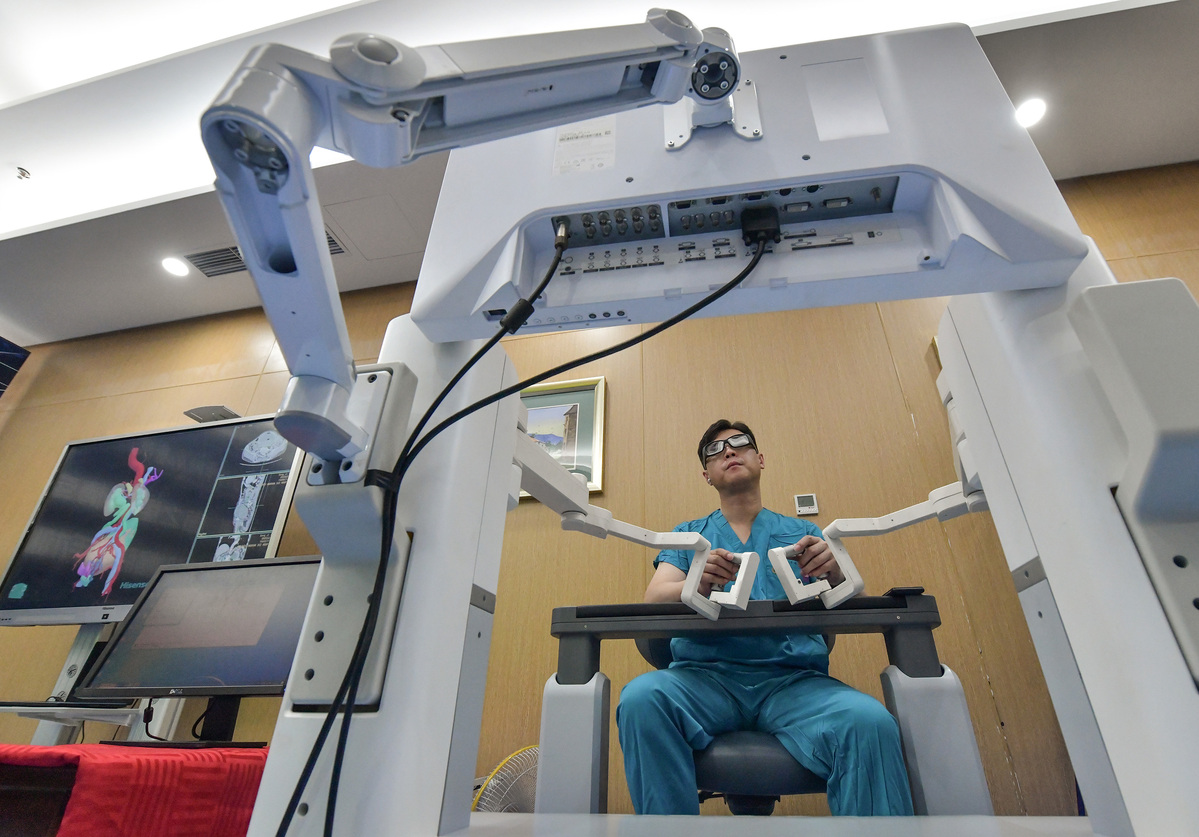Chinese robot performs long-distance surgery using 5G
BY BASIRAT ISHOLA
Artificial intelligence, which is also abbreviated as AI, refers to the branch of computer technology that focuses on developing machines that have the capacity and intelligence to replicate or copy human functions as closely as possible. They are usually employed for such functions as speech recognition, planning of tasks, learning and solving diverse problems in different professions.
As it is the case with modern advancements, there are appreciable advantages associated with the use of AI, coupled with some drawbacks, both existing and forecasted by experts and enthusiasts. Some of these are explained below.
Pros
Advertisement
A key advantage has to do with its ability to deliver quite precise results. In other words, the usual human errors that can come up as a result of fatigue or distractions can be totally eliminated by employing the use of a well-designed and programed AI machine. The end result is improved accuracy and greater delivery.
Fraud detection in smart card-based systems is possible with the use of AI. AI machines are quite efficient when deployed to sniff out fraud in smart card based systems. This has been extensively deployed in industries that employ the use of smart cards, such as cable TV organisations, banks etc.
In addition to the above, it has become more common to deploy intelligent machines to carry out dangerous assignments such as detonation of explosive devices, such as land mines and bombs. This is usually due to their ability to work very fast and effectively, without stress or tension that can result in errors.
Advertisement
It has also become quite common in the medical field. The use of algorithms has simplified the area of diagnosis e.g. neurological disorders; training of medical personnel via simulators like surgeons on delicate procedures. They are often used to carry out repetitive functions that are time consuming in diverse professional fields.
From the above, it is very obvious that the strength of artificial intelligence that invariably lures a lot of fields into deploying them is drawn from their ability to function efficiently under minimum supervision, without the need to take a nap and are never bored or frustrated as long as they are properly programmed and maintained. They also help to minimise or eliminate health and safety risks to humans, when used as substitutes to carry out hazardous jobs.
Cons
There are a number of drawbacks associated with the deployment of AI, paramount amongst them is the huge cost implication it attracts in the area of maintenance, replacement and repair of parts and upgrade. There is also the challenge of restoration of lost codes, which can be quite rigorous, time consuming and expensive.
Advertisement
Another concern, which some people may term sentimental but which is in any case important, is that of ethics and morals. Are we not usurping the position of God, the creator, by imputing human intelligence in machines? Shouldn’t human intelligence be left to natural forces?
It is unarguable that AI machines have the capacity to carryout repetitive jobs for extended periods, but they lack the capacity to learn from this process of repetition and get better on the job like humans. They cannot deviate from what they are programed for. This has its advantages, but in situations where there is a need to adjust to an unforeseen development, it becomes a major handicap. In such situations the input of man becomes quite indispensable.
In this present time of heightened global challenges with terror, it becomes quite risky to allow AI that can be used to carryout dangerous tasks fall into the wrong hands. This can cause devastating consequences especially in the area of nuclear warfare and the use of robots to convey bombs into crowded environment.
Ishola, a lead data scientist and business intelligence specialist, writes from Lagos.
Advertisement
Views expressed by contributors are strictly personal and not of TheCable.






